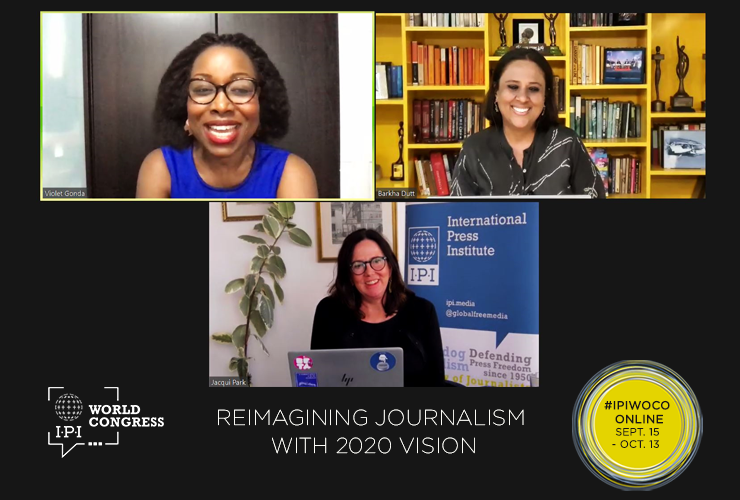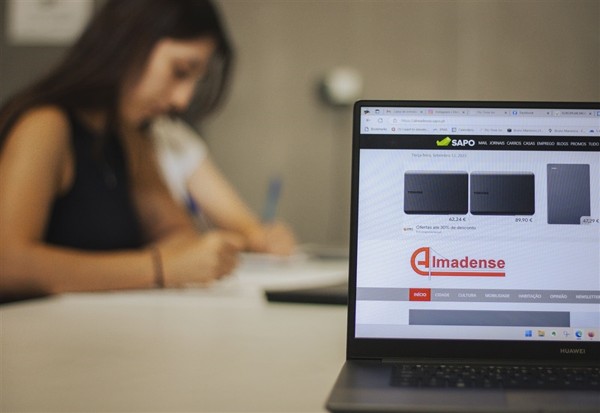Awards and accolades are nice but they do not pay the bills when facing press freedom restrictions. Two reporters turn to donors and non-journalistic gigs to keep their work sustainable
In countries where mainstream media is blunted by press freedom restrictions, the burden of providing in-depth coverage often falls on independent journalists and news outlets. The problem is, this type of journalism has a significant sustainability problem in the digital age.
“Impact is not enough, winning awards and recognition is not enough,” says Barkha Dutt, editor of Mojo, a YouTube news channel, speaking at Independent Press Institute’s World Congress 2020 last week (8 October 2020).
Dutt has won many awards during her two decades as the prime-time face of NDTV, the Indian television media company. She left in January 2017 over disputes around self-censorship, and started up Mojo eight months ago with a promise to provide “editorial integrity, civility and non-partisan content.”
The pandemic was an opportunity to put this mission into practice. For nearly four months, her team was on the ground travelling across India clocking up 24,000 kilometres.
The awards kept coming for Dutt, as her coverage received the COVID19 India Prize by US-based Emergent Ventures, a fellowship and grant programme supporting entrepreneurs. But accolades do not pay the bills.
Even for an organisation spearheaded by someone as popular as Dutt (her Twitter account exceeding 7m followers), this kind of resource-intensive, boots-on-the-ground reporting is hard to monetise on YouTube as advertisers are reluctant to be associated with critical content. As such Mojo’s biggest stories are not monetised and revenue there is “minuscule.”
She identified that online advertisement still lags behind that of TV, and external funding through philanthropy and grants is not sufficient yet. Beyond that, voluntary audience donations and tiered subscriptions are the only other options for independent news outlets. It is for this reason Dutt now charges for professional talks and has also started to embrace ‘non-journalistic’ work like corporate video and events.
Ultimately, she said it has never been more important for audiences to support quality and independent journalism. There is no fifth option, which is why the YouTube channel has a donation button.
“It is easy to be an armchair critic of the state of media, but if you as the audience are not willing to do anything about it, you are part of the problem,” she says.
That approach does not hold true in every country. Violet Gonda is a Zimbabwean freelance journalist with 20 years of broadcast experience. She was exiled from the country in 2001 by then-Prime Minister Robert Mugabe but managed to keep reporting on the country from the UK, US and South Africa. When she returned in 2017 following the fall of Mugabe, she was treated like a foreigner in her own country, forced to renew her tourism visa every three months to avoid being deported.
Even still, Gonda provides a level of journalism not found anywhere else in the country. She has worked as a freelance journalist on exposés around killings of election demonstrators by partnering with NGOs. But because of endemic poverty and unemployment in Zimbabwe, she cannot expect readers to pay for content.
By continuing to work with NGOs, she has found more work lately by moderating townhall debates on Zoom meetings. However, negotiating rates is tough when she has spent so much of her career in more affluent parts of the world. It can also be difficult to convey the value she is providing to the country, as she finds herself undercut by the competition.
“Trying to negotiate that contract with people on the ground in Zimbabwe to say ‘This is what I charge for my worth, the work that I do and my skills’, is very difficult,” says Gonda.
“In many cases, they expect you to do it for free because the journalists on the ground do it for free or they charge just $50USD for a two-to-three-hour panel discussion.
“They’re doing the research, questioning and all the other parts that come with the job. It’s not fair, people must understand that journalism is a profession. We’re not doing it just for the sake of it.”
Supporting independent journalists
The need to support independent journalism is greater when you consider the contexts these professionals work in.
Dutt said that in politically polarised news environments, journalists often take sides as to gain some protection from either the opposition or the ruling party. To be truly independent means to face a barrage from both sides.
“You reach a point where nobody is talking to you and you are getting abused from both sides with equal ferocity,” she explains.
“Journalists chase too much popularity, they must be comfortable with being unpopular.”
This was a very real scenario for Gonda when she covered the 2013 Zimbabwean election from South Africa. Her only access to official comment was through press conferences, as she was denied interviews by both sides at every turn.
When she returned to Zimbabwe in 2017, officials were not used to her hard line of questioning. That brought forth different smear campaigns, including portraying her as a “reckless, rebellious journalist” and being discredited, ironically, on the mainstream news.
Women, too, are more susceptible to abuse, be that sexualised trolling or threats to security, added Dull, explaining that journalists who resist taking safe positions are in desperate need of audience support.
“When you hear the word ‘independent’ you are most likely looking at people who felt that the status quo of the media was too oppressive, not doing truth-telling, [took] its eye off the ball that journalism represented and that’s why people like us have left the newsroom,” she concludes.




